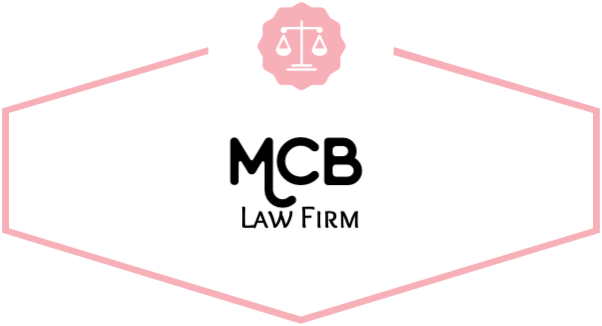
What does it mean to go through Probate and what is California Probate Court?
Definition and Function:
One of the ways to legally inherit a decedent’s assets is through the probate process. To start the probate process, an heir or beneficiary must open a probate case by filing a form titled DE-111 with the county courthouse where the decedent resided at the time of death. The filing fee is currently $435. The petition for probate must be filed within 30 days of the decedent’s death. After the petition is filed, the court will schedule a first hearing within 4-6 weeks. A second hearing will be held about 6-12 months after the first hearing, which at that time the judge will decide on the final distribution of assets.
Probate court is a specialized court that oversees the legal process of probate, which involves administering the estate of a deceased person. The primary function of probate court is to validate wills, appoint executors or administrators, and ensure the lawful distribution of assets to heirs.
Jurisdiction and Venue:
San Fernando Valley, as part of Los Angeles County, falls under the jurisdiction of the Los Angeles County Superior Court. Residents dealing with probate matters will navigate the probate court system within this jurisdiction.
Common Probate Matters:
Probate court handles a range of matters, including validating wills, appointing executors or administrators, determining heirs, resolving disputes, and overseeing the distribution of assets. Understanding these aspects is crucial for individuals involved in the probate process.

The Probate Process
Initiating Probate Proceedings:
The probate process typically begins when a person, often a family member or the named executor in a will, files a petition with the probate court to open the probate proceedings. This initiates the legal proceedings necessary to settle the estate.
Validating the Will:
If a valid will exists, the court will validate it to ensure its authenticity. If there is no will, the court will proceed with intestate succession, following California’s laws for distributing assets.
Appointing the Executor or Administrator:
The court appoints an executor if there is a valid will, or an administrator if there is no will. These individuals are responsible for managing the deceased person’s estate, including paying debts, filing tax returns, and distributing assets.
Inventory and Appraisal of Assets:
An important step in probate involves creating an inventory and appraisal of the deceased person’s assets. This process helps determine the overall value of the estate and facilitates the equitable distribution of assets among heirs.
Notifying Creditors and Settling Debts:
The court ensures that creditors are notified, providing them with an opportunity to make claims against the estate. The executor or administrator is responsible for settling valid debts and liabilities from the estate.
Distribution of Assets:
Once debts are settled, the remaining assets are distributed to heirs according to the terms of the will or the laws of intestate succession. The court oversees this process to ensure fairness and compliance with legal requirements.
Seeking Professional Guidance in San Fernando Valley
Probate Attorneys:
Navigating probate court proceedings in San Fernando Valley often necessitates the expertise of a probate attorney. These legal professionals specialize in probate matters and guide individuals through the complexities of the court process, ensuring compliance with California probate laws.
Estate Planning Attorneys:
An estate planning attorney play a vital role in helping individuals avoid probate complexities altogether. Through comprehensive estate planning, including the creation of trusts and wills, residents can minimize the need for probate court involvement.
Mediation Services:
In cases where disputes arise during the probate process, mediation services can offer a constructive alternative to lengthy court battles. Mediators facilitate communication and help parties reach amicable resolutions.

Probate Court and Its Impact on Heirs

Timeline and Duration:
The duration of probate proceedings can vary based on factors such as the complexity of the estate, potential disputes, and court caseloads. Understanding the timeline is crucial for heirs awaiting the distribution of assets.
Costs and Fees:
Probate proceedings often incur various costs and fees, including court fees, attorney fees, and appraisal costs. Heirs should be aware of these financial implications and factor them into their expectations.
Potential Disputes Among Heirs:
Disputes among heirs can arise during probate proceedings, especially in cases of blended families or complex family dynamics. Professional guidance helps address conflicts and reach legal resolutions.
Alternatives to Probate
Revocable Living Trusts:
Creating a revocable living trust is a proactive approach to avoid the probate process. Assets placed in a trust can be distributed to beneficiaries without court involvement, streamlining the transfer of wealth.
Joint Tenancy:
Assets held in joint tenancy with rights of survivorship automatically pass to the surviving joint owner, bypassing probate. This arrangement is commonly used for real estate and certain financial accounts.
Beneficiary Designations:
For assets such as life insurance policies, retirement accounts, and bank accounts, designating beneficiaries allows for the direct transfer of assets to the designated individuals, avoiding probate.
Small Estate Affidavit:
A Small Estate Affidavit is a sworn written statement that is used to settle an estate of someone who has passed away. This alternative is quicker than going through Probate and is typically used when there is no Will. To qualify, the decedent’s estate cannot be more than $184,500 and the limit for the purpose of transferring real property was increased to $61,500 as of April 2022. Only probate assets are counted toward these limits; for example, assets that were jointly owned with the decedent do not apply because they are exempt, meaning they would be received outside of probate. If the estate qualifies for the Small Estate Affidavit in California, the petition cannot be filed until 40 days after the decedent’s death.

Conclusion
In the San Fernando Valley, California, probate court serves as a crucial institution for individuals involved in estate administration. Meshi Chitrit Berman Law, offers compassionate and knowledgeable support for those going through the probate process. The firm is dedicated to helping residents of San Fernando Valley going through probate court with clarity and confidence.
